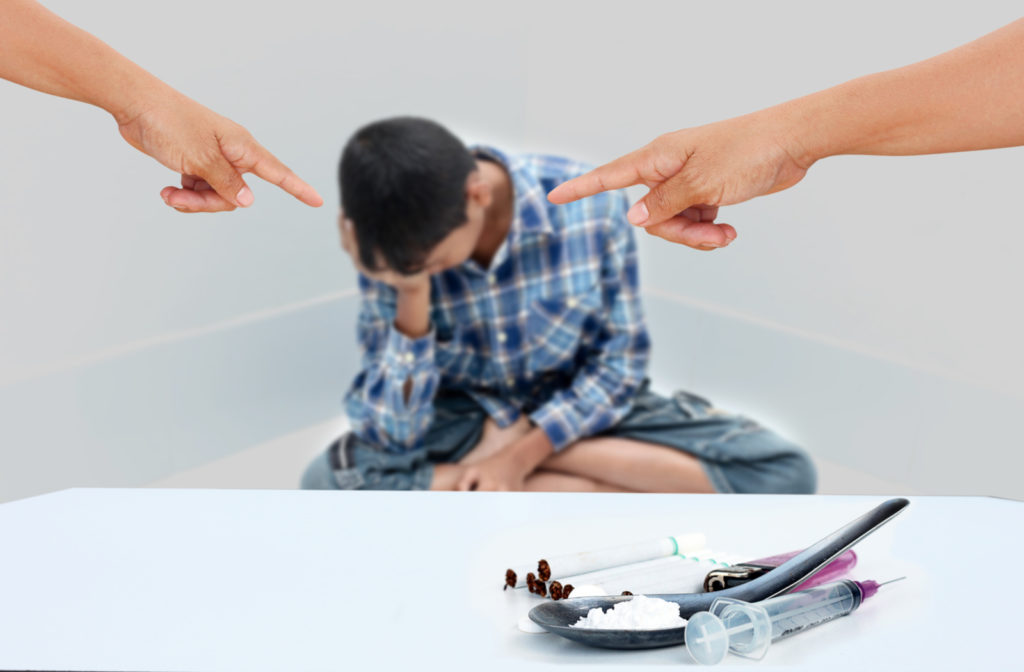Recovering from addiction is a long and challenging process. While addiction is a deeply personal battle, it may impact a person’s loved ones in significant and deeply traumatizing ways. Taking on an addiction recovery journey often becomes a whole family’s responsibility, and it’s essential to have all the knowledge you need before going on it.
How Addiction Impacts Families
Addiction and recovery are often just as difficult for family members and loved ones as those struggling with addiction. Addiction impacts families in several profound ways:
- Children are neglected, affecting their social & emotional development
- Families lose trust & bonds are difficult to regain
- Stress levels increase as families make up for the lack of effort
- Financial problems grow as money pays for addiction before other responsibilities
- Heightened emotions lead to larger conflicts, even in minor disagreements
It is essential to understand these impacts because they can also be warning signs to spot if someone has not yet come to terms with their addiction issues.
Do Genetics Affect Addiction?
Recent studies show how genetics may play a role in addiction. Family plays an integral role in a person’s addiction and recovery. But outside of genetic factors, family and social environments can significantly impact a person’s mental health and wellbeing, sometimes leading down the path to addiction.
If someone grows up in an environment surrounded by drug and alcohol abuse, it can lead to depression, anxiety, and self-medication. These conditions can cause addiction to drugs or alcohol. Across generations, addiction may become a growing problem, which is why understanding a person’s family history with substance abuse is vital.
How Family Members Can Play a Healthy Role in Addiction Recovery
Family members can play a significant role in a person’s journey to recovery. Family support can make addiction recovery less lonely and lead to more successful outcomes.
Break the Silence
Addiction often begins in secret as a person tries to hide it from the rest of their life. Over time, the addiction becomes more challenging to manage and mask, and the symptoms become easier to spot.
The most impactful way you can help your loved one is to acknowledge the addiction outright. It’s essential not to be accusatory but to approach the situation with love, understanding, and non-judgement.
A person struggling with addiction might be embarrassed or lash out at you. Your job is to make sure they understand you’re on their side. Some helpful ways you can prepare before approaching someone you suspect is struggling with addiction are:
- Educate yourself on addiction, so you know what you’re talking about
- Listen more than you speak and ask questions to help the person open up
- Choose your words carefully; writing them down might help
- Don’t tell them what to do or issue an ultimatum—remember they need your help
Create a Support Network
Developing a support network is essential to a person’s addiction recovery. Without it, overcoming addiction is monumentally more difficult. As a family member, you play a crucial role in creating and maintaining this support network.
As a support network, you can help a person recover by:
- Scheduling regular meals with them
- Planning social activities
- Being an outlet for communication
- Encouraging rest & relaxation
Help Prevent Relapse
Addiction recovery is not a straight line. A person’s path may twist and turn around obstacles. It will be challenging, scary, and lonely. During these times of high emotion and stress, a person struggling with addiction would have previously turned to a substance to help them cope—and they may do it again.
Family members can help prevent relapse by fostering an open and accepting environment free from judgment. A person recovering from addiction will reach out for help if they feel they will be cared for and loved regardless.
Unhealthy Roles Family Members Play in Addiction Recovery
It’s also important to understand unhealthy family dynamics that can be harmful during a person’s recovery journey.
Being an Enabler
An enabler is somebody who makes excuses for a person struggling with addiction. They’re the people who say, “One drink won’t hurt!” or “You’ve earned a night off from recovery.” These excuses are harmful to a person’s addiction recovery and often lead to relapses.
When someone is recovering from addiction, they may need to face the consequences of their actions. An enabler tries to protect from shame and embarrassment, but they are disrupting the recovery process and doing more harm than good.
Being the Hero
Often in the family dynamic surrounding a person with addiction, one member will stand out as the hero. In comparison, the hero is elevated as an overachiever and often receives high praise, while the person struggling with addiction experiences shame and guilt.
The hero can be a severe obstacle to a person’s addiction recovery. They can place unrealistic pressure on a person in recovery, which may impact them negatively and lead to relapse.

Being the Joker
When a family is going through a difficult time, one member may take on the role of the joker. This person, often younger than the rest of the family, will make light of difficult situations. Sometimes this can lead to making fun of a person struggling with addiction.
A joker usually pokes fun at serious situations as a coping mechanism. The effects can be harmful, especially when a person on a recovery journey feels like their support system is not taking their situation seriously.
Signs to Look For When Spotting Addiction
Breaking the silence begins with recognizing the signs of addiction. Many times, a person won’t see the signs of addiction in themselves or will deny them. Some key signs to recognize addiction are:
- Increased isolation & neglecting personal relationships
- Seeking out substances or going places where substances are present
- Experimenting with harsher substances
- Decreased interest in favourite hobbies & activities
- Lack of remorse for negative actions
- Lying or bending the truth when asked about certain activities
Remember the principles of breaking the silence when approaching a person you suspect is struggling with addiction. Your kindness, understanding, and non-judgment will help them as they begin their addiction treatment.
Seeking Help When You Need It
Treatment programs are a resource to help someone with their addiction recovery. A person’s recovery is an individual process they must go through themselves, but having a support network in place increases their chances of success.
It also helps to have trained professionals who understand the long road to recovery and can help people with addiction and their families navigate their journey together.
Places like the Calgary Dream Centre help people restore dignity and guide them through the addiction recovery journey. Our programs include:
- Men’s Addiction Recovery
- Women’s Addiction Recovery
- Housing
- Social Detox
Calgary Dream Centre offers professional, compassionate, no-judgment programs to help your loved one and your family on their addiction recovery journey when you need it.



